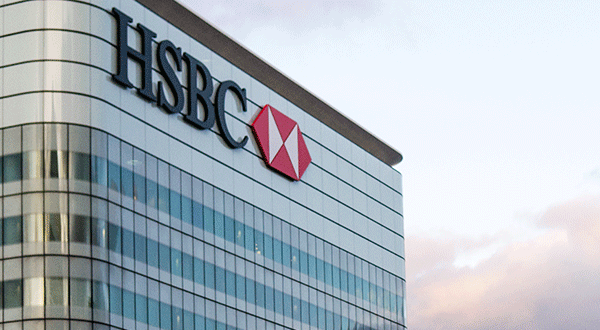HSBC applies AI to fight crime
April 10, 2018 | Expert Insights

HSBC is introducing the use of robots to identify money laundering, fraud and terrorist funding. It is the latest bank to apply artificial intelligence to help stop financial crime.
Background
HSBC is a British multinational banking and financial services holding company. Globally, it is the seventh largest bank by total assets and the largest in Europe with total assets of US$2.374 trillion as of December 2016. HSBC was established in London in 1991 by The Hong Kong and Shanghai Banking Corporation to act as a new group holding company. Its origin can be traced back to Hong Kong and Shanghai, where branches were first opened in 1865. The company was first formally incorporated in 1866. Both the United Kingdom and Hong Kong are considered its ‘home markets.’
The bank has around 3,900 offices in 67 countries and territories across the globe, with around 38 million customers. Its services are organized within four business groups: Commercial Banking; Global Banking and Markets (investment banking); Retail Banking and Wealth Management; and Global Private Banking.
Artificial Intelligence
Artificial intelligence (AI) is a new age technology demonstrated by machines. AI research is traditionally defined as the study of ‘intelligent agents’: any device that perceives its environment and takes actions that maximize its chance of successfully achieving its goals. Generally, the term AI refers to machine mimics cognitive functions that humans associate with other human minds, such as learning and problem solving.
Artificial intelligence was founded as an academic discipline in 1956, and has since experienced various transformations in the form of new approaches. AI research has been typically divided into subfields based on technical considerations, such as robotics or machine learning.
The goals of AI include reasoning, knowledge representation, planning, learning, natural language processing, perception, and the ability to move and manipulate objects. There are many tools involved in AI, including mathematical optimization, neural networks, statistics, probability, and economics.
Presently, AI techniques have seen a resurgence following advancements in computer power, large amounts of data, and theoretical understanding. AI techniques have also become an important part of the technology industry, assisting in solving challenging problems in computer science.
Analysis
In the search for suspicious activities, HSBC is planning to combine the AI software of Quantexa, a UK-based startup, to filter through copious amounts of data it has on customers and their transactions, which is publicly unavailable data.
Over the past decade, banks have been impacted by multibillion-dollar fines for failing to stop illegal finance flowing through accounts. Many large banks have been partnering with AI technologies and software in order to clean up their act.
According to the Financial Conduct Authority, the use of AI to screen large amounts of data provides the opportunity to save money, considering that banks spend £5 billion per year to combat financial crime in the UK alone. This move comes after HSBC froze an account connected to an alleged US$500 million fraud Angola’s former president’s son. HSBC stated that this is a sign that its tougher compliance systems are in place and effective.
In 2012, the bank was hit with a US$1.9 billion settlement to avoid criminal charges for money laundering by Mexican drug cartels and breaching US sanctions on countries including Iran and Sudan. Since then, HSBC has invested billions of pounds to improve its compliance controls. As part of its clean-up efforts, the bank sold more than 100 businesses and withdrew from more than 20 countries. Under the leadership of Chief Executive John Flint, the bank is considering pulling out of another 67 countries it still operates in, such as Uruguay, Bermuda, and Malta.
Quantexa was founded in 2016. It develops software to scan structured and unstructured data on transactions from different sources, such as phone numbers, addresses, company directors and news reports, in search of suspicious connections. The founder and chief executive of Quantexa, Vishal Marria said: “It is about understanding the flows of money: we build that picture for every customer in real time.” Last year, HSBC and Albion Ventures funded the company with US$3.3 million. Additionally, HSBC has entered into a partnership with Ayasdi, an AI specialist, to automate parts of its anti-money laundering investigations.
Recently, Denmark’s Danske Bank partnered with Teradata’s Think Big Analytics unit to scan transactions in real time, whereas Singapore’s OCBC agreed to a partner with BlackSwan Technologies and Silent Eight to improve and speed up its detection and investigation of suspicious transactions.
Assessment
Our assessment is that harnessing technology and data would help HSBC and other banking and financial services institutions to assess criminal behavior in real time and have control of such activities. Globally, regulators are closely monitoring banks’ use of AI to detect financial crime. Many other banks have also partnered with technology providers to combat financial crime, including Royal Bank of Scotland. We believe that HSBC’s investment in Quantexa could help the banking sector utilize technologies effectively in its approach to financial crime risk management.








Comments